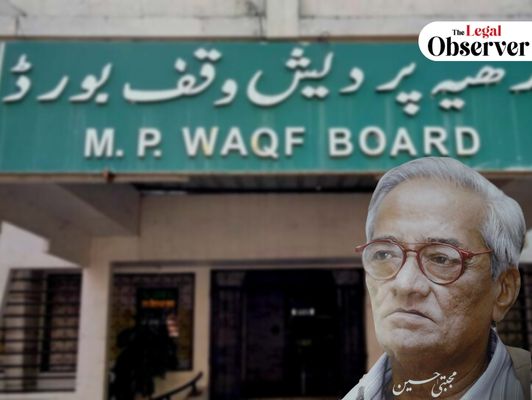Advocate Mujtaba Hussain, Allahabad High Court, Lucknow bench has discussed Waqf Act which talks about a property whose ownership lands with God “Allah”, no individual holds the ownership of those property titles transferred to god.
But it doesn’t mean the heir of the Muslim religion people will not holds any benefits, they hold benefits which are made by the waqif, who is the actual owner of that property where he or she made a scheme for the disposal of property such as distribution of property at the mentioned ratio to their heirs, trust or needy people.
Waqf deed means any deed or instrument by which a wakf has been created and includes any valid subsequent deed or instrument by which any of the terms of the original dedication have been varied.
If any person has no legal heir then that property is distributed among the needy. The most important point he shared is that the people have to remember that if the property is registered under the waqf act then the legal owner of that property will hold no right on their own property even the mutawalli or beneficiary.
There is a board known as waqf board under the Waqf act to govern. The recent waqf act came into force in 1995 which is a central act.
The changes made on waqf act in 1995 are such as the changes on board members, lease conditions. The only cons in this act is that the Hussain board is now going to be governed by a central government which is the most important disadvantage of the new waqf act, 1995.
The waqf property is made by the creator, a waqif. The registration of waqf needs an inquiry before the board goes for waqf and a wrong registry of property in waqf can also get denotified.
He also shared his views on the agenda of a survey made by the central government that the waqf property is used for social reform, charity etc so for the purpose of survey the intention should be clear and true in nature to perform the survey.
Being a part of Sunni Waqf Board he also told the importance of waqf act such as there are numerous waqf property in India which is used for social work places, masjids etc and to utilise those property the Waqf act came into force.
Waqfs are of three types such as waqf fi lillah or public waqf, Waqf alal aulad or private waqf. A waqf created solely for the public purpose of religious or charitable nature is called waqf fi lillah.
If Waqf board feels that the property is abandoned in nature or there is no source of money from that property then the waqf board send proposal to central that they are purchasing that property from behalf of the abandon property then that waqf property will transfer otherwise not.
He concluded his statement by quoting that in Islam or any other religion the most improper thing is intention if the intention is right then the result will be right.






